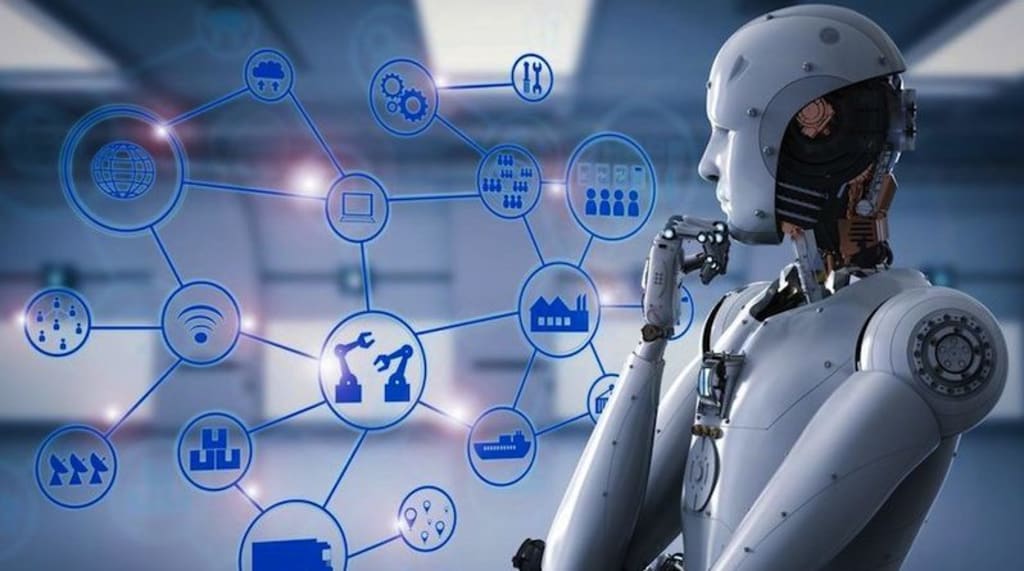Top 10 AI technologies that may shape the future
AI technologies

Artificial intelligence (AI) is rapidly advancing, and its potential impact on society is enormous. From self-driving cars to virtual agents, AI is transforming the way we live and work. In this article, we'll explore the top 10 AI technologies that may shape the future.
Natural Language Generation (NLG)
Natural language generation technology is advancing rapidly and can produce human-like language that can be used for writing reports, articles, and more. This could change the way we communicate and consume information. With NLG, we could see a significant shift in the way we generate content and communicate with each other.
Facial Recognition
Facial recognition technology is already being used in security systems, but it could have broader applications in areas like marketing and healthcare. In marketing, facial recognition could be used to analyze customer emotions and preferences. In healthcare, it could help with diagnosing diseases and monitoring patients.
Autonomous Vehicles
Self-driving cars are already being tested and are expected to be widely available in the near future. This could transform the transportation industry and reduce traffic accidents. Autonomous vehicles could also have significant environmental benefits by reducing emissions and traffic congestion.
Robotics
Robots are being used more and more in industries like manufacturing and healthcare. As they become more advanced, they could take on more complex tasks and become more integrated into our daily lives. We could see robots being used for everything from cleaning our homes to assisting with surgeries.
Predictive Analytics
Predictive analytics technology can analyze large amounts of data to make predictions and identify patterns. This could have applications in fields like finance, healthcare, and marketing. For example, predictive analytics could help banks predict credit risk or help healthcare providers identify patients who are at risk for certain diseases.
Virtual Agents
Virtual agents are AI-powered assistants that can interact with humans in natural language. They can be used for customer service, personal assistants, and more. As virtual agents become more advanced, they could replace human customer service representatives and assist us with everything from booking flights to ordering groceries.
Cybersecurity
AI can be used to detect and prevent cyberattacks, making our digital systems more secure. With cyberattacks becoming increasingly common, this technology could be critical in protecting our personal and financial information.
Healthcare
AI can be used to analyze medical data and assist in diagnosis and treatment. This could lead to more accurate and personalized healthcare. AI-powered tools could help doctors make more informed decisions about patient care, leading to better health outcomes.
Agriculture
AI can be used to monitor crops, detect pests and diseases, and optimize crop yields. This could help address food security challenges and ensure that we can feed a growing global population.
Education
AI can be used to create personalized learning experiences for students, helping them learn more efficiently and effectively. With AI, teachers could identify each student's strengths and weaknesses and tailor lessons to meet their needs. This could revolutionize education and help more students succeed.
In conclusion, AI is already transforming the way we live and work, and we're only scratching the surface of its potential. As technology continues to advance, we can expect even more innovative applications of AI in a variety of industries and fields. From autonomous vehicles to personalized education, AI has the potential to make our lives easier, safer, and more fulfilling.
Here are a few suggestions to readers who are interested in AI technologies:
Stay informed: AI is a rapidly evolving field, so it's important to stay up to date on the latest developments. Follow news sources, blogs, and social media accounts that focus on AI to stay informed.
Learn the basics: If you're new to AI, it's important to start with the basics. There are plenty of online resources, courses, and books available that can help you learn the fundamentals of AI.
Experiment: Don't be afraid to experiment with AI technologies. There are many open-source tools and platforms available that you can use to try out different AI applications.
Collaborate: AI is a complex and interdisciplinary field, so collaborating with others can be beneficial. Join online communities, attend events, and network with other AI enthusiasts to learn from others and share your own experiences.
Be ethical: AI has the potential to impact society in profound ways, so it's important to consider the ethical implications of AI applications. Stay informed about ethical issues related to AI and strive to develop and use AI technologies in an ethical and responsible manner.
About the Creator
Ahamed Rifath
Meet Ahamed Rifath, an experienced and skilled content writer who has a passion for creating high-quality and engaging content. With 5 years of experience in the field






Comments
There are no comments for this story
Be the first to respond and start the conversation.